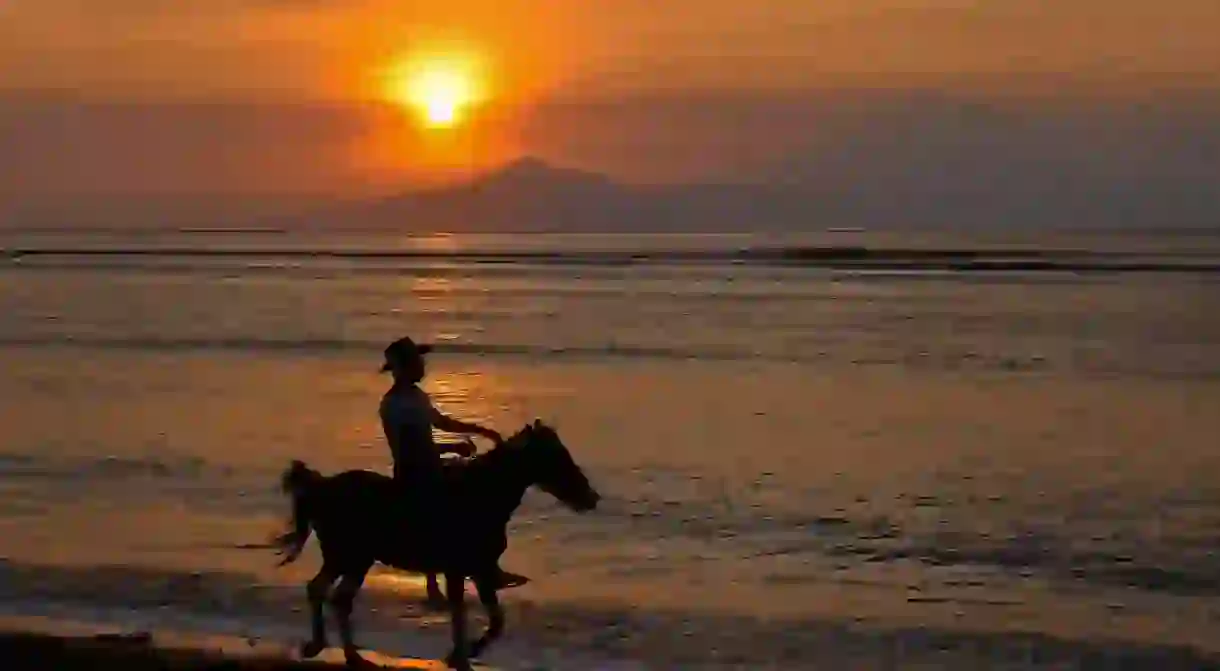11 Commonly Mispronounced Places in Indonesia

Despite housing some world-famous destinations, many Indonesian names still remain unfamiliar to visitors. However, learning local names expands your knowledge, shows respect and builds relationships. It also helps you better understand a nation’s culture.
In Indonesia, incorrectly pronounced places are often repeated by other tourists, and later, by locals, who want to communicate better with visitors, causing the original name to be nearly forgotten. This list reveals the correct ways to pronounce well-known destinations in Indonesia.
Kuta
Koo-tä isn’t necessarily the wrong way to pronounce this world-famous beach in Bali. That’s how most people say it, including locals. But the native Balinese would say ‘Koo-the’, placing their tongue at their palate when pronouncing the t, before saying the second syllable. In the bustling Kuta neighbourhood near the beach, you can still hear local drivers and guides yell Kuta that way when offering their services.

Jakarta
Je-kar-duh has become a common way to refer to this metropolitan city; it has become so widespread that locals have started using this pronunciation when speaking English. However, you can still learn the real Indonesian way of saying this destination, which is Jä-kär-tä, with the a‘s resembling the a in ‘car’. Also, make that final ‘ta’ definite, the way you’d pronounce the ‘ta’ in ‘ta-da’, rather than saying ‘duh’.

Misool
One of the four major islands in diving paradise Raja Ampat, Misool’s lavish resorts and thriving wildlife have allured domestic and foreign tourists alike. We understand that it’s tempting to construe the double o as o͞o, the way ‘cool’ and ‘pool’ are pronounced. But the Indonesian language does not have this rule. The double o in Misool should be viewed as too regular o‘s; in other words, there is no need to drag out the two o‘s. Simply call this awe-inspiring dive destination ‘Misole’.

Sorong
Sorong may not be a popular destination in itself, but as the main hub for traveling to Raja Ampat, you’re bound to mention its name. Because of the way English speakers pronounce r‘s, many foreign tourists call this city in Papua ‘So-wrong’. That is so wrong. Even if you can’t roll your r’s like Indonesians do, avoid the mistake by cutting the first o short and nonchalantly getting on with the ‘rong’, without emphasizing the r.
Ende
Ende is the capital of Flores, best known for the tri-coloured Kelimutu Lake. In Indonesian, the letter e doesn’t read ‘eɪ’, so the city is not called ‘Indie’, ‘Endie’ or even ‘End’, with a silent e at the end. In this case, the first and last letter of Ende sounds more like the a in ‘care’. You can think of it as ‘End’ with another ‘ay’ at the end.

Gili Islands
This string of islets off the coast of Lombok used to be a notorious backpacking destination. Today, Gili Trawangan, Gili Meno and Gili Air welcome everyone, from lavish globetrotters to travellers on a shoestring budget. While this spot has become increasingly popular, visitors still have trouble pronouncing the islands’ names. For starters, ‘Gili’, which means ‘Island’ in the local dialect, is pronounced ‘Gee-lee’ with a hard g. Trawangan is not an easy word to remember, so most foreign tourists just call the island Gili T. In case you’re wondering, Trawangan is pronounced ‘Trah-wä-ngän’, with all a’s wide open, like when you’re saying ‘bar’. The e in Meno sounds like the e in ‘bell’, and Air is pronounced differently than the English word ‘air’. Instead, say it with a long, open ‘ah’, followed by ‘eer’.

Campuhan
This sacred hill is one of Ubud’s main highlights; it’s popular as a ridge walk, with a glorious nature vista and ancient Hindu temples. When you’re talking to your driver or asking for directions, don’t say ‘Camp-uh-and’. The c reads like the one in ‘chair’, and all the a’s sound like the a in ‘park’. Some natives also read it with a silent ‘h’. To sum it up, pronounce Campuhan like this: ‘Chämpoowan’ or ‘Chämpwan’.

Ciwidey
This highland area is one of Bandung’s most lively neighbourhoods, with family-friendly attractions and natural features. It’s one of many places in West Java with ‘Ci’ as the first syllable, meaning ‘water’ or ‘river’ in the local dialect. As a general rule, imagine saying ‘ching’ with the ‘ng’ when you pronounce that first syllable. This cool neighbourhood in Bandung is pronounced ‘Chee-wee-day’.

Gag Island
Gag is a beautiful, inhabited island, and part of the famed Raja Ampat Islands. The small island is enclosed by rock formations, coral reefs, mangroves, and white sand beaches. If you’re thinking the name doesn’t sound very appealing, that’s because you’re saying it wrong. In Indonesian, the a sound is always like the one you hear in the word ‘bar’ or ‘car’. Now say the name again without gagging.
Krakatoa
Notorious for its earth-shaking 1883 eruption, Krakatoa is now a delightful destination for hiking and snorkelling. Its black volcanic beaches and vibrant underwater diversity promise unique sights to behold. The Indonesian name for this volcanic island is ‘Krakatau’. And although the English name is spelled differently as ‘Krakatoa’, the pronunciation remains the same. Say it like this: ‘Kra-ka-taw’.

Indonesia
It’s possible that you’ve even been pronouncing the country’s name incorrectly. This common slip has to do with the way letters are pronounced in Indonesian. Unlike in the English language, the letter e is never pronounced ē, but rather sounds more like the English a, or like the ‘e’ in ‘better’. So, if you want to say it like real locals do, Indonesia is pronounced ‘Een-doe-nay-syah’.













